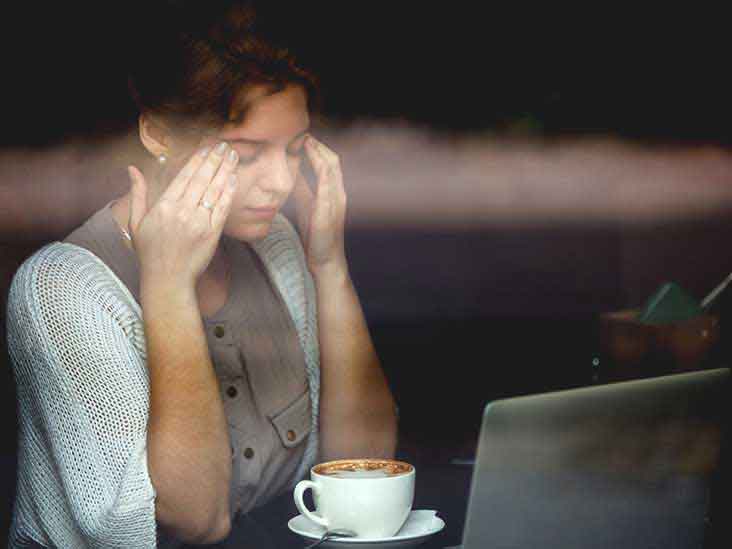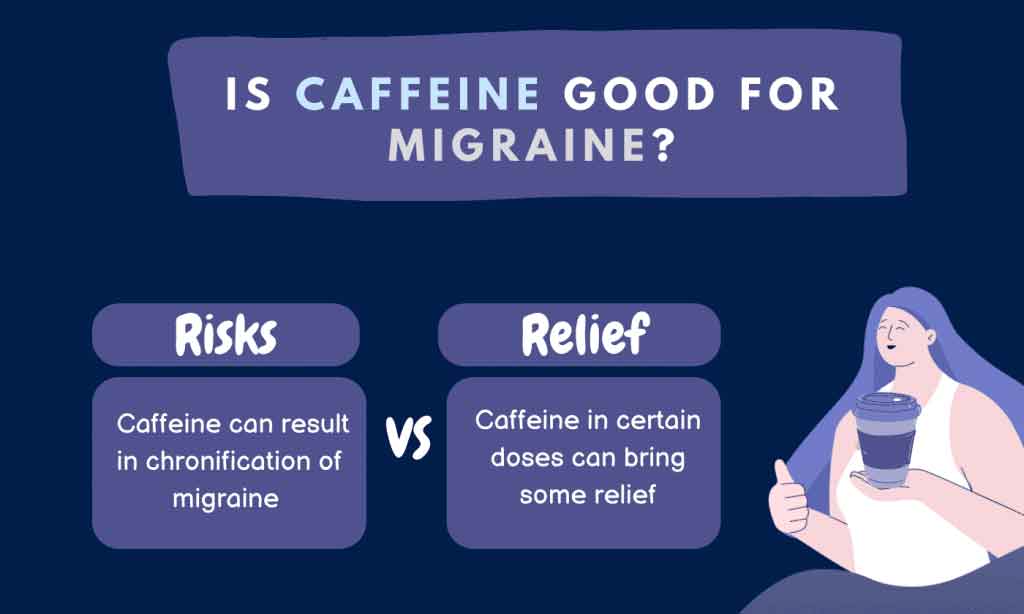Does Caffeine Triggers or Cures Migraine?
Everybody gets headaches once in a while. Many of us have caffeine in what we drink and eat consistently. Have you thought that your morning coffee might be the cause of your headaches? As per research caffeine can cause or cure a headache.
Caffeine has for some time been connected to migraine attacks. Be that as it may, whether it’s a trigger or a cure for migraine stays unclear. Caffeine is a prominent and effective part of numerous over-the-counter and prescription migraine drugs. But at the same time, it’s one of the top food sources to avoid assuming that you live with migraine.

Can Caffeine be the Cause of your Migraine?
Coffee contains caffeine, a vital fix in different headache meds. Nonetheless, drinking coffee is certainly not a viable treatment choice for migraine headaches. This is because caffeine’s effects on the brain can vary contingent on how frequently an individual purposes it. At times, drinking coffee might trigger migraine headaches.
Consuming caffeine can cause a migraine headache in two ways : dehydration and the deficiency of magnesium during urination. Furthermore, higher doses of caffeine have a diuretic effect, which can make an individual urinate all the more much of time. This can prompt dehydration, bringing about a migraine headache.
It can likewise increase the deficiency of magnesium during urination. Magnesium plays a beneficial role in ongoing pain conditions, like migraine.
- Withdrawal : It’s simple for your body to get so used to the effects of caffeine that when you don’t have it in your system, you have withdrawal. A headache is one of the side effects. This can happen when you have caffeine consistently, even as little as some coffee daily.
- Too Many Medicines : Caffeine might likewise be a factor in what’s known as a drug at any point of overuse, or rebound headache. This can happen when you take a lot of any sort of pain reliever or take it time after time. When the medication wears off, the pain returns worse than previously. When you join caffeine with pain relievers this condition is almost certain.
How can Caffeine provide relief from Migraine?
During a migraine, blood vessels swell, tighten or go through different changes, causing an increase in blood flow around the brain. This increases blood flow pressures encompassing nerves, which send pain messages to the brain. This welcomes the headache.
Caffeine has vasoconstrictive properties, implying that blood vessels thin to restrict blood flow, in this way reducing the pain. Likewise, when caffeine is taken in blended with pain meds, for example, aspirin, ibuprofen, or acetaminophen, it increases the absorption and strength of the prescription to give quick relief.
Caffeine lessens inflammation, and that can bring relief. It likewise gives a lift to normal headache cures. Whether you use aspirin, ibuprofen, or acetaminophen, they work quicker, and better and fend the pain off for longer when joined with caffeine. An extremely rare condition called hypnic headaches answers particularly well to caffeine. These strike more established people, waking them around midnight with extreme pain. Specialists commonly let people know who gets these and have some coffee before bed.

What are the common sources of Caffeine in your daily diet?
When you are looking to cut down on your caffeine intake or want to more accurately record your caffeine intake each day for your headache diary, it’s necessary to be aware of all the potential sources of caffeine. Apart from caffeinated beverages, like coffee, tea, soda, and energy drinks, other sources of caffeine include :
- Ice – cream (coffee), yogurt, or frozen yogurt.
- Chocolate, particularly dark and bittersweet (like milk, bars, and cocoa).
- Some headache medications (like Excedrin Migraine and Fioricet and Fiorinal).
- Some dietary supplements (like Zantrex-3 weight-loss supplement).
- Certain snack foods (like Jelly Belly Extreme Sport Beans and Energy Granola).
Can decaffeinated coffee also trigger migraine headaches?
For coffee to have the characterization “decaffeinated,” producers should eliminate around 97.5% of its caffeine. In any case, this implies that decaffeinated coffee contains caffeine. In this way, people with caffeine-responsive qualities ought to be cautious when picking and consuming decaffeinated coffee, particularly on the off chance that caffeine is a migraine trigger for them.
Coffee makers will at times say that beans decaffeinated with ethyl acetic acid derivation are “normally decaffeinated” because the compound is normally tracked down in some produce. In any case, similarly, as with methylene chloride, the ethyl acetic acid derivation is ordinarily created artificially and conveys a few dangers at high doses.
What’s truly clear, nonetheless, is that for people who experience insomnia, irritability, headaches, nausea, anxiety, butterflies, and increased blood pressure in the wake of drinking an excess of caffeine, changing to decaf might be a sound choice.

How much Caffeine you can take?
People with migraine wish to keep drinking coffee, they might find these tips supportive :
- Stay mindful of how much caffeine they consume day to day.
- Attempt to restrict their caffeine admission to something like 200 mg day to day.
- Monitor every one of the items that they consume that contain caffeine. This incorporates coffee, tea, caffeinated beverages, prescriptions, and soda pops.
- Keep their day-to-day caffeine admission consistent.
If people wish to quit drinking coffee, they ought to gradually tighten their caffeine consumption over a long time. People might find it beneficial to monitor their headaches by utilizing a journal that records what they have eaten and how much caffeine they have consumed over the day.
What other medications can help along with Caffeine?
To treat migraine, a doctor may prescribe the following medications :
- Anti-inflammatories, like acetaminophen and nonsteroidal anti-inflammatory drugs.
- Triptans.
- Antiemetics to help prevent nausea and vomiting.
- Beta-blockers.
- Antiepileptics.
- Antidepressants.
- Botox.
- Calcitonin gene-related peptide receptor antagonists.
There are a couple of integrative choices to treat migraine headaches, which include :
- Acupuncture : There is evidence to propose acupuncture can assist with lightening migraine headaches.
- Biofeedback Treatment : Biofeedback treatment and relaxation preparation ordinarily lead to a 45-60% decrease in headache frequency and severity.
- Yoga : Stress can be a trigger for migraine headaches. Yoga might assist with bringing down stress and anxiety levels.

What you can do?
Keep a track of the amount of caffeine you consume and how it affects you. Monitor when your headaches happen and what appears to help or block them. On the off chance that you have continuous headaches, consider gradually lessening your caffeine admission and consuming it with some restraint. It’s smart to keep a food diary so you can recognize any eating and drinking designs that could trigger an attack. Attempt to keep how much caffeine you consume as consistent as could be expected. Suddenly increasing your admission could trigger a headache, and suddenly halting your admission might bring about caffeine withdrawal, which may likewise initiate a headache.
Texas Speciality Care has cutting-edge medical care to diagnose any serious and chronic medical problems. We have expert and professional doctors ensuring timely, cost-effective, and high-quality diagnostic care for migraine treatment.
Call us at (469) 545-9983 to book a telehealth appointment for a home check-up.

